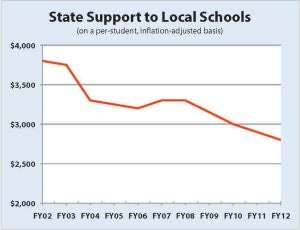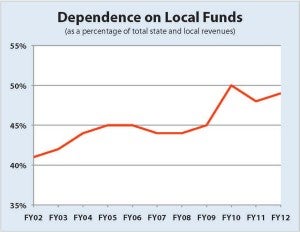BOE warned of rising premiums
Published 5:26 pm Friday, March 18, 2011
Employees of the Decatur County School System, as well as the system itself, can expect a significant increase to health insurance premiums during the next fiscal year, starting July 1.
The State Health Benefit Plan, Georgia’s self-insured benefit plan that covers state employees, including teachers, is expecting a $250 million shortfall next year and plans to close the gap by increasing premiums, to both the employers and employees.
That unexpected news was part of a glimpse of the school system’s forecasted budget given to the Decatur County Board of Education Thursday night. And the forecast was not pretty.
School system Chief Financial Officer Tim Matthews projected that expenditures would exceed revenues by $1.9 million during the 2012 fiscal year.
The state has informed school systems that premiums for non-certified, non-teaching employees would increase by 51.3 percent, or $1,000, per employee annually. In total, the change would add $240,275 in expense next year.
The increase for certified employees (teachers), the majority of the staff of the school system, has not yet been shared with the system. But, the expectation is that the increase will be the same, if not higher, than for the non-certified staff.
“The increase for certified employees has been a tight-lipped secret from everyone at the state,” Matthews said. “We can’t find out from anyone and that means its (the increase) not going to be pretty.”
Currently, the system pays $3.6 million annually for the employer portion of health benefits for certified employees. The school system’s portion of certified employee benefits is 18.5 percent of each employee’s state salary. Matthews indicated that it would cost the system $100,000 for each half-percent increase of the premium.
For non-certified employees, the system will pay $2,954.40, annually per employee, a total of $695,894.
“This is one adjustment that we have absolutely no control over. None whatsoever,” said Superintendent Fred Rayfield. “The state has decided to try to recover today from a hole that has taken years to dig. The certified number is going to be so big, and so staggering, that they will keep that number close to the vest until this legislative session is over.”
The increase in benefit costs, combined with an additional $220,000 in the pre-kindergarten program costs shifted away from the state and the absence of $455,000 in funds from the American Recovery and Reinvestment Act will lead to the projected $1.9 million gap. But, that gap does not include the increase in certified employee health benefits.
The forecasted revenues for fiscal year 2012 are $36.13 million and the forecasted expenses are $38.04 million.
Matthews provided the board with a summary of funding cuts in total over the past three years, and the associated jobs eliminated during that same time. The local system has lost a little more than $10 million, or 24 percent, in funding and has reduced the total workforce by 66 positions, or 10 percent of the total employment of the system.







